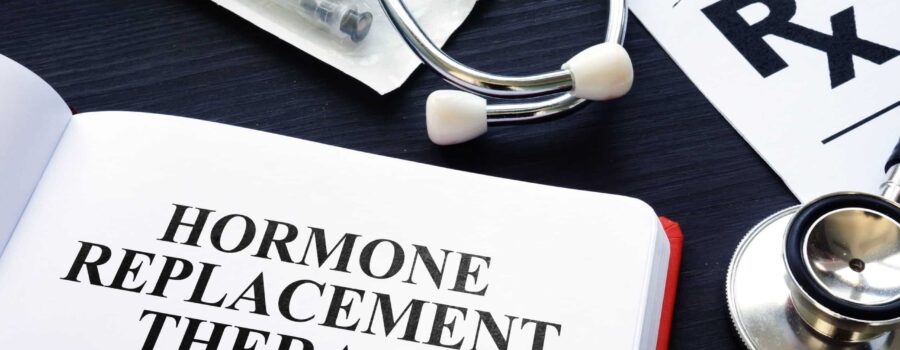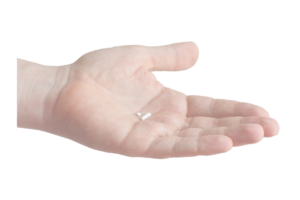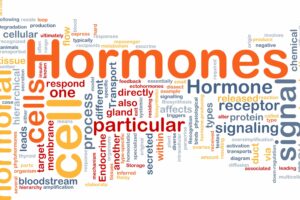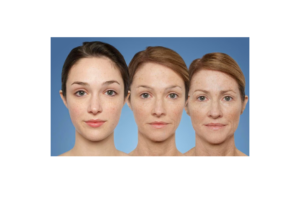As we step into a new year, it’s the perfect time to take stock of our health and wellness. Hormonal balance plays a critical role in how we feel, function, and age. Whether you’re a man or a woman, understanding the signs of low hormones and knowing when to consider hormone replacement therapy (HRT) or testosterone replacement therapy (TRT) can be life-changing. Let’s dive into how to determine if this is the right step for you.
Understanding Hormonal Decline
Hormonal levels naturally fluctuate throughout our lives. While declining hormone levels are often associated with middle age, it’s important to note that they can begin diminishing much earlier due to lifestyle and environmental factors. Poor diet, chronic stress, lack of sleep, exposure to endocrine-disrupting chemicals, and even certain medications can all accelerate hormonal imbalances.
HRT and TRT aren’t about achieving superhuman hormone levels; rather, they aim to restore hormones to the optimal ranges we experienced in our younger years. By doing so, we can reclaim vitality, improve overall health, and feel like the best versions of ourselves.
Symptoms of Low Hormones in Women
For women, declining hormones—especially estrogen, progesterone, and testosterone—can manifest in a variety of ways. Here are common symptoms:
Physical Symptoms:
– Fatigue
– Weight gain, especially around the abdomen
– Hot flashes or night sweats
– Hair thinning or loss
– Dry skin and brittle nails
– Vaginal dryness or discomfort during intimacy
Emotional Symptoms:
– Mood swings
– Anxiety or depression
– Difficulty concentrating (commonly referred to as “brain fog”)
Sexual Symptoms:
– Decreased libido
– Painful intercourse
Other Signs:
– Irregular or absent menstrual cycles
– Poor sleep quality
While these symptoms are often associated with menopause, younger women may also experience hormonal imbalances due to factors like PCOS, chronic stress, or rapid weight changes.
Symptoms of Low Hormones in Men
For men, testosterone levels naturally decline with age, but other factors can accelerate this process. Symptoms of low testosterone include:
Physical Symptoms:
– Decreased muscle mass and strength
– Fatigue or low energy
– Increased body fat, especially around the midsection
– Hair loss
Emotional Symptoms:
– Low motivation
– Irritability or depression
– Difficulty focusing or “brain fog”
Sexual Symptoms:
– Decreased libido
– Erectile dysfunction
– Reduced sexual satisfaction
Other Signs:
– Poor sleep quality
– Slower recovery from workouts
Low testosterone isn’t just a concern for older men. Factors like obesity, chronic stress, and exposure to environmental toxins can lead to a significant decline in testosterone levels at a much younger age.
Why Lab Testing Matters
Subjective symptoms are essential when evaluating hormonal health, but objective laboratory data provides the clarity needed to make informed decisions. Hormonal imbalances can sometimes be subtle, and lab tests can uncover issues that might otherwise be overlooked. That’s why we’re offering discounted male and female lab panels to kick off 2025 and help you prioritize your health.
Who Should Consider HRT or TRT?
HRT and TRT are not just for mid-aged individuals. If you’re experiencing symptoms of hormonal imbalance, regardless of your age, it’s worth exploring whether these therapies can benefit you. Factors that might make you a good candidate include:
– Persistent symptoms of hormonal decline, even with lifestyle adjustments.
– Lab results confirming suboptimal hormone levels.
– A desire to improve energy, mood, and overall quality of life.
Lifestyle and Environmental Factors to Address
Before or alongside considering HRT or TRT, it’s essential to address lifestyle and environmental factors that may be contributing to hormonal imbalances:
1. Nutrition: Prioritize whole, nutrient-dense foods, and avoid processed foods that can disrupt hormones. Gut health plays a factor in our hormonal balance as well. Be sure to check out February’s blog when we take a deep dive into gut health!
2. Exercise: Incorporate both strength training and cardiovascular exercise.
3. Sleep: Aim for 7-9 hours of quality sleep each night to support hormonal regulation.
4. Stress Management: Practice stress-reducing techniques such as meditation, yoga, or deep breathing.
5. Limit Toxins: Reduce exposure to endocrine-disrupting chemicals found in plastics, personal care products, and household cleaners.
Benefits of Hormonal Optimization
Restoring hormonal balance through HRT or TRT can lead to profound benefits:
– For Women: Improved mood, better sleep, increased energy, reduced hot flashes, and enhanced libido.
– For Men: Increased muscle mass, better energy, improved libido, and sharper mental focus.
– For Both: A greater sense of vitality, slow the aging effects of hormonal decline, and enhance overall well-being.
Our Commitment to Your Health
To make it easier for you to take charge of your hormonal health, we’re kicking off 2025 with discounted male and female lab panels. This is your chance to gain valuable insights into your hormonal status and create a plan tailored to your unique needs.
Hormonal balance is a cornerstone of looking and feeling your best. Let’s make this year about reclaiming your vitality and achieving your health goals. Whether you’re considering HRT, TRT, or simply want to understand your hormonal health better, we’re here to guide you every step of the way.
Ready to start your journey? Book your lab panel today and take the first step towards your best health yet!







